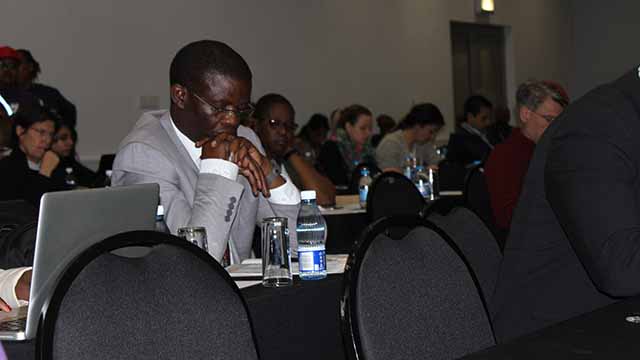
There is no denying that the introduction of the internet and social media has been a great disruptor of journalism. In the past journalism controlled communication from government to audience, it told audience what was happening, why it was happening and most importantly it delivered audience to advertisers. But, with the introduction of the internet and social media this has been disrupted.
The internet has now made it possible for information to be delivered directly to the audience, social media now links brand and companies directly to consumers meaning that journalism is now in danger. The advertising model that has for many years worked for journalism, with media companies linking advertisers to their audience is under threat and media companies are scrambling to find a new models and strategies to deal with this disruption.
The World Media and Economic Management Conference that gathers leading media managers, scholars, researchers and journalists discussed the challenges that journalism is facing, with one of the main direct challenges of the disruption is that journalists are required to do more. Journalists are now required to be multi-skilled, they need to be able to tweet, write a story as well as take photographs, that is besides the longer working hours they are required to work because of 24-hour news channel that are emerging as a response to the internet being able to deliver news at any time. Media mangers have also not been immune to this disruption, they too have taken up more work. According to Maphi Mahlangu, Managing Director and Editor-in-chief of eNCA, more is required of media managers, they no longer wear one hat but two, three or four. They are now worried about both the content that is produced but also the balance sheet of the company.
Sue Valentine of the Open Society Foundation, believes one of the important steps that media companies need to take to respond to the disruption is create a relation between them and their audience but they also need to learn to listen to their audience. Media companies need to know what their audience like and what they are willing to spend their time on in order to attract more eyeballs.
The internet and social media has disrupted what we know journalism to be with some media companies facing an uncertain future. However, media scholars believe it’s important that media companies do not forget why journalism has been such an integral part of society by holding those in power accountable and being the voice of the oppressed in their quest to implement new strategies to respond to this disruption.
Now is the time for media companies to test different strategies whether its collaboration with tech giants tech or in South African instance collaboration with other media companies in Africa to educate Africans about new the continent. But we should never forget that journalism should always be for the common good.
